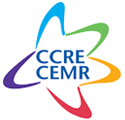
Moldova Unitary state
| MOLDOVA | / STRUCTURES |
Structures and competences
Local level :
1,547 villages (sate) and communes* (comune), 5 municipalities (municipii) and 61 cities* (orașe) plus about 66 villages (sate) within cities structure
The local council (consiliu local) is the deliberative body of the local governments. Its members are elected by direct universal suffrage for a period of four years, either on the basis of political party lists or independent candidates. Budget setting, local policies and territorial planning are the main competences.
The executive body is represented by the mayor (primar), who is elected by direct universal suffrage for a period of four years, and by the mayor’s office (primarie).
COMPETENCES OF COMMUNES, CITIES AND MUNICIPALITIES*
- Urban and spatial planning
- Waste management
- Water management and sewerage systems
- Local roads management
- Local public transport
- Cemeteries
- Local property management
- Educational centre management
- Local gas and heating distribution
- Culture, sport and recreation
- Economic development
- Social housing
- Fire services
*Communes consist of two or several villages in one administrativeterritorial structure. Out of the 61 cities, 5 are officially recognised municipalities, of which two are located in the region with a special status, allowing them to fall outside the control of the Moldavian government (Transnistria). The other is located in the autonomous region Gagauzia.
All local governments of the first tier have the same competences and the same degree of local autonomy, which is quite low.
Regional level :
32 districts (raioane), the Gagauzia Autonomous Territorial Administrative Unit and the municipalities of Chisinau and Balti
The district is a territorial administrative unit of the second level, consisting of a large number of villages and cities and satisfying the role of a distinct regional entity.
The district council (Counsiliul raional) is a representative body of local government, elected through free and universal elections. The district council sets up a permanent board as a working body and executive authority comprised of the chair of the district, vice chairs and their executive apparatus.
The chair (presedinte) of the district is elected by the regional council for 4 years. He/she is at the head of the region’s executive branch or apparatus. The executive body at the regional level is called the district chair’s office (Aparatul Presedintelui raionului).
The executive body is responsible for the administration of regional affairs and implementation of the decisions of the district council.
COMPETENCES
- Management of property
- Regional public transport
- Spatial planning
- Economic development support
- Local gas and heat distribution
- Education building maintenance
- Cultural, tourism and sport management
- Social assistance
The Gagauzia Autonomous Territorial Administrative Unit (Gagauz-Yeri)
Gagauzia is an autonomous territorial unit having a special statute and representing a form of self-determination of the Gagauzian people. As a special territorial unit it has its own assembly, the Gagauzian people’s assembly (in Gagauz: HalkTopluşu; in Romanian: Adunarea Populara), which enjoys lawmaking powers within its own jurisdiction, and a governor (Gagauz: Başkan; Romanian: Guvernatorul Gagauziei) holds the executive power. She/he is elected by direct universal suffrage for a period of four years. Permanent executive power in Gagauz-Yeri is exercised by an executive committee (Bakannik Komiteti/Comitetul Executiv).
Its members are appointed by the governor or by a simple majority vote in the assembly at its first session. The executive committee ensures the application of the laws of the Republic of Moldova and those of the Gagauzian assembly.
COMPETENCES
- Science
- Culture
- Education
- Housing management
- Urban planning
- Health services
- Physical culture and sports
- Local budget, financial and taxation activities
- Economy and ecology
- Labour relations and social security
- Own police force
- International and foreign policy
The municipality of Chisinau (municipiul Chisinau) and the municipality of Balti (municipiul Balti)
The municipalities of Chisinau and Balti have competences of both local level and district level.
COMPETENCES
- Social and economic development
- Maintenance of public roads
- Construction of hospitals, schools, roads
- Health care
- Maintenance of sanitation and social institutions
- Assistance to young families
- Social protection to the unemployed
- Public order
- Environment protection
- Youth activities and sports
- Secondary education and professional education





